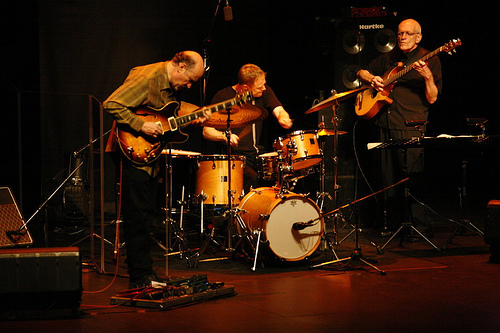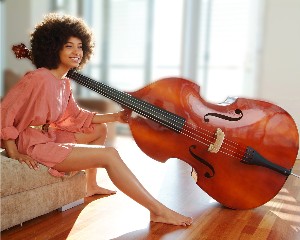The Fuse in London: Jazz Festival, Diary 2
So what’s the critic’s function when the music itself doesn’t have critical mass with the public? Surely not cheerleading or hype. But surely not nose-in-the-air either.
By Steve Elman.
Well, some editors are paying attention. There were two London Jazz Festival (LJF) reviews, occupying a half page in the Times this a.m.
Maybe the reason I saw so little in the UK’s paper of record over the weekend is that Saturday and Sunday editions are set up and put to bed too early for timely pieces in the arts.
And maybe I should realize that freedom for Aung San Suu Kyi is a pretty big story, which has probably caught the attention of journalists in newsrooms all over the world and made arts coverage seem a bit less important.
In any event, there were reviews today. Alyn Shipton covered Friday night’s traditional opener, a big orchestral affair spotlighting many singers, including Georgie Fame and Gretchen Parlato, directed by Guy Barker. And Clive Davis (no, not the Columbia/Arista record label exec) skewered last night’s Herbie Hancock’s “Imagine” concert and offered a snipe or two about Esperanza Spalding’s gig as well.
I love a snarky review as much as the next guy, and Davis’s made me feel OK about opting out of music Sunday night, choosing dinner instead with former Boston Globe columnist Steve Bailey, his vivacious wife Beatrice, and their irrepressible daughter Mona.
I asked Bailey (now an editor with Bloomberg News, based here in Big Town) why the London press wasn’t giving more ink to the LJF. Was it just that jazz continues to be the poor sister in arts and music coverage—not as classy as classical and not as popular as pop?
He quite reasonably pointed out that there are events in arts and culture here in such number that the editors are probably hurting for space to do everything, but, on further reflection, he also noted that the blockbuster shows tend to get quite a bit of continuing attention from the press. “Maybe you’re right,” he said. “It’s jazz.”
Like that great last line of film, “Forget it, Jake. It’s Chinatown.”
Sigh. Is it ever going to be thus?
My experience with jazz festivals confirms my feeling that if a general audience can latch on to some of the visceral enthusiasm that jazz people have for their music, they’re much more likely to approach what they hear with receptive minds.
Conversely, if jazz is seen as an intellectual, esoteric, insider’s music, it will seem more difficult to uninitiated ears.
(Apropos of nothing, I think this is true of classical as well. When I finally grew up enough to start listening with intelligence to music in the classical tradition, I was surprised at how easily I was moved by it and how cheated I felt because I’d been reading essays for decades by critics who’d bled the emotion out of their reviewing.)
So what’s the critic’s function when the music itself doesn’t have critical mass with the public? Surely not cheerleading or hype. But surely not nose-in-the-air either.

John Scofield, Steve Swallow, and Bill Stewart —when they play, all is right with the world. Photo: Jorge Pimenta
The crowd of 500+ at the Hadouk/Andy Sheppard show (see previous diary entry) on Saturday were undoubtedly delighted by the exoticism of the music, but they responded just as seasoned listeners do to well-crafted solos and strong ensemble playing. Bringing a show like this one to a local theatre seemed to me to be very smart concert production, because it tapped into a certain amount of neighborhood pride. There is something inherent and vital about good music, well played, especially good music played live, but it’s more approachable when someone decides to bring that good music to the venue around the corner.
And I caught a sense of “event” among a pre-concert crowd yesterday when I stumbled across a line (sorry, queue) anticipating an LJF performance in a small room at the Royal Academy of Arts by Budapest Bar, a quartet from Hungary featuring a cimbalom player. I would have gotten a ticket, if I’d just had a little more notice.
Aren’t these issues worth talking about? Or am I just a fool for love, continuing to look at the world through jazz-colored glasses?
Tonight, at least, all should be right in the world, when I see a two-part John Scofield show. First half will be a set with his favorite rhythm players, Steve Swallow and Bill Stewart, coming off a European tour. Second half will have John playing with the Scottish National Jazz Orchestra.
Honestly, I can’t wait.

